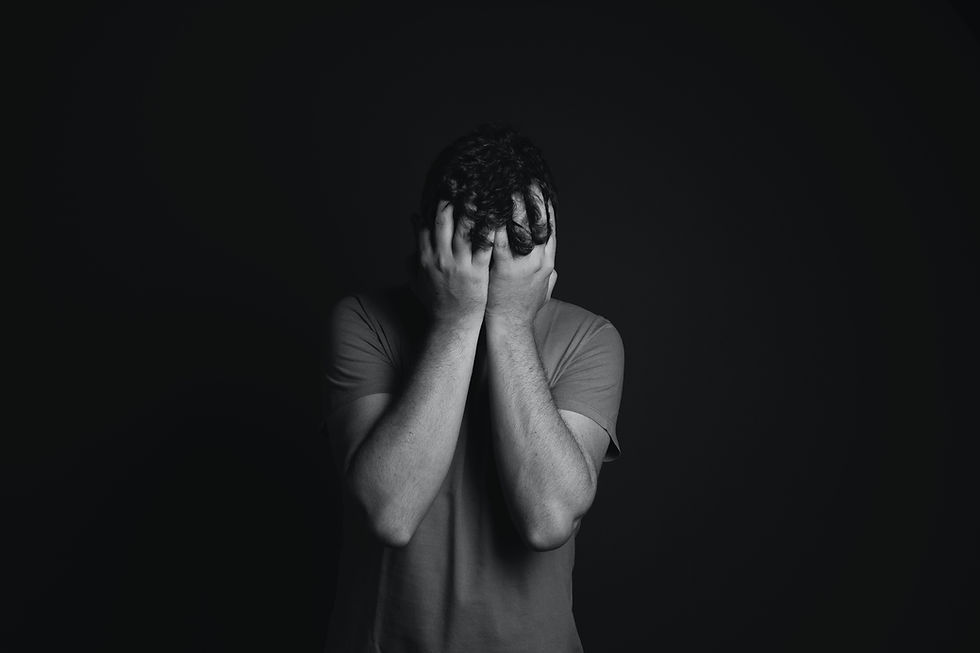Use and Abuse: Fashion’s Mental Health Problem
- Katie Harrison

- Oct 19, 2020
- 3 min read
Updated: Aug 19, 2021
Use and abuse culture
Use and abuse culture facing graduates and young professionals as they enter the fashion industry is often the source of poor mental health. Having experienced several unpaid internships myself within the industry, I have seen first-hand how long, relentless hours can take their toll on personal wellbeing.
Graduates and students bursting with fresh creative talent and youthful enthusiasm are over-used and thrown out on a continuous cycle. The high stress environment with constant pressure to stay ahead of trends and work at top-speed is impossible to maintain. Sadly, unpaid work in fashion has become normal. We see internships as the holy grail merely get your foot in the door.
Often romanticised and highly desired, the fashion industry is notably difficult to break into as a graduate or entry level worker. We see the glamour and expensive charity dinners. The plethora of front row celebrities and influencers. We desire the unattainable lifestyles of models and the paycheques of creative directors.
Yet what we don’t see or often appreciate is the true backbone of the industry. The supply chain. From the cotton farmers growing crops hundreds of miles away, to the unpaid interns working 50+ hour weeks. Granted, models and designers are an essential piece to the puzzle. Yet, why are they the only ones being recognised accordingly for their hard work?
A toxic workplace
It doesn’t take long to understand how the fashion industry has a bad rap. Films and TV often portray fashion as bitchy, privileged and unwelcoming. This is certainly true to an extent having been on the receiving end of coffee runs and last minute fabric sourcing. However, to generalise an entire industry is a little unfair.
Friendly faces and helpful colleagues do exist behind facade. So perhaps the endless cycle of new trends, consumerism and fast fashion is causing stress for employees and putting a strain on working environments.
As the industry propels to transform from two sought-after seasons to a continuous 365-day machine, the workplace continues to pick up pace. With a faster momentum now than ever before, expectation falls on workers to adhere to the demand.
However, with high demand comes an even higher pressure. Across all vocations from models to interns, the industry exudes stress and toxicity. Whilst our physical health can often hide our anxieties, ultimately our mental wellbeing is compromised.
Limiting diversity
Aside from our individual mental wellbeing, use and abuse culture limits diversity. Unpaid internships are typically only achievable if you have the economic resources to cover your own living expenses. This is particularly apparent in London.
The Mercer Cost of Living Survey named the city as one of the top 20 most expensive to live in. Without access to free accommodation, help with travel expenses and food costs, it is virtually impossible to undertake unpaid work in London.
Amongst other big brands and fashion houses, Vogue has been called out for not paying their interns. Whilst this is commonplace across the industry, at Vogue this feels particularly insincere. Although Edward Enninful has vowed to increase diversity in the fashion house since he became editor, in reality changes are perhaps only superficial.
We have seen diversity on the recent covers of Vogue. For the May 2020 issue, we saw Rhianna wearing a durag. Whilst the June 2020 issue brought us Judi Dench, the oldest person ever to star on the cover at 85. Alongside this there are visible improvements as we flick through its ever-glossy pages. Nonetheless, are we seeing real change in the structure of the company? Perhaps inclusivity must come from the bottom up. Paying interns works hand in hand with a genuine commitment to real diversity in the industry.
Opening up a discussion
How can we break this toxic use and abuse culture and change working environments? Fashion houses need to take responsibility and make changes to improve their employee’s mental health. For instance, opening up conversations about anxieties, sleep deprivation and depression will enable workers to feel safe. Whilst helping to remove the stigma surrounding burnout and mental health, creating a friendly space to talk at work will alleviate stress and make a happier workplace.
So, as consumers, we can encourage a slower paced fashion industry and stop the knee-jerk reaction to keep on creating. Advocating for slow fashion and reducing your own personal intake of short-lived trends and marketing jargon. This will push the industry to re-think. Perhaps a slower fashion world would be a haven for mental wellbeing and security at work.
Whilst unpaid internships are becoming slightly less frequent, it’s still not the customary practice. For real change in the industry, we must see an end to the use and abuse culture of our interns.
Solving this problem is simple and would benefit employers and employees alike.



Comments